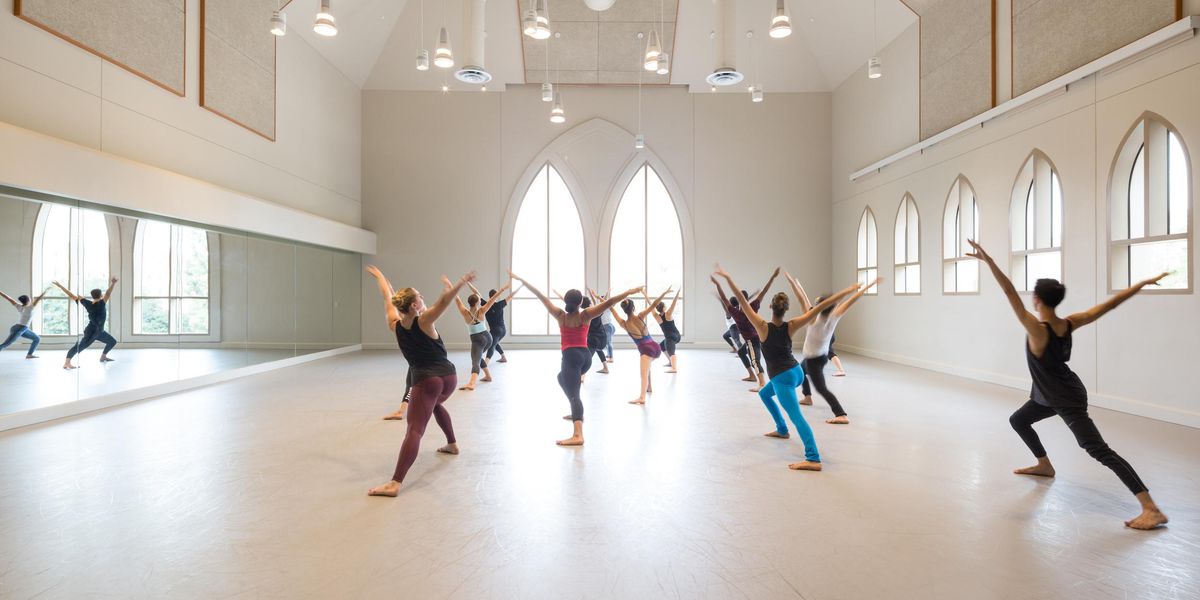Money Talks
Eliza Sherlock-Lewis. Photo by Al Viciedo, Courtesy Sherlock-Lewis.
A few months ago, freelance ballet and contemporary dancer Eliza Sherlock-Lewis was hired for a brief project: one week of rehearsals culminating in two paid performances. A couple days in, she asked a fellow dancer if the director mentioned how much they would receive. “My friend said, ‘No, she didn’t say anything. But I feel like at this point, it’s awkward to ask,’ ” recalls Sherlock-Lewis. Nonetheless, she e-mailed the director, inquiring about the fee and mentioning that she was enjoying rehearsals. “I phrased it casually,” she says.
Sherlock-Lewis didn’t receive a reply that evening, which made her nervous. But the next morning, the director approached her. “She was very nice and open about it,” says Sherlock-Lewis. The director told her how much she’d be paid and then rehearsal began—without any trouble.
The outcome was a relief and Sherlock-Lewis walked away with more than a paycheck. “I learned that I have to know what I’m signing up for,” she says. “Not just the details of the dancing, but what they’re offering me. And I have to know that before I agree in case it’s not what I want.”
For many dancers, discussions about money evoke discomfort if not outright fear. Some worry they’ll be seen as too demanding and hurt their chances of being offered work. But there are ways to broach the topic successfully. “Dancers have a right and responsibility to think about the quality of their lives, and compensation is an important part of that,” says Griff Braun, the New York–area dance executive with the American Guild of Musical Artists. “No matter how the conversation turns out, hopefully the dancer will leave feeling confident and in a better position to have this conversation again.”
Timing is Crucial
Financial considerations should begin before you audition. “When you’re looking into a job, you should always know whether it’s paid, performance stipend, rehearsal stipend or salaried,” says Sherlock-Lewis. But what about gigs that aren’t so straightforward? “I personally feel that a dancer has a right to ask about compensation before the audition,” says Francis Patrelle, artistic director of Dances Patrelle.
But the critical moment arrives after you’ve landed the gig. “That’s the only time dancers have some leverage,” says Braun. “Then you have the discussion about money.” If you’re hoping to get a raise, the window of opportunity comes between contracts or seasons. “Before the next block of work, go in and talk about your position, the work you’ve done and what you think you can do, and what you’d like to receive for it,” says Braun.
Pop the Question
Braun and Patrelle recommend having money conversations with a general manager, executive manager or someone else handling a company’s business affairs. But in smaller companies, the director or choreographer may take care of everything. Whatever the situation, enter the conversation with a sense of what you want and how you’re going to ask for it. “I definitely practice before,” says Sherlock-Lewis. “I want to know exactly what I’m going to say, and have a response if they say yes or no.”
The key to success is all in your approach. Try framing the conversation in a positive light as Sherlock-Lewis did, conveying enthusiasm and professionalism. “Approaching it from that angle—I want to be here, I’m passionate about this work—evokes confidence,” says Braun. “I think directors appreciate young dancers who are direct about their abilities and what they want.”
Grow from the Outcome
In the best-case scenario, you’ll receive the compensation or raise you had in mind. But the company might not grant your request, and how you proceed depends on your particular situation. Perhaps they can offer something else, such as classes, pointe shoes or a performance reel. And sometimes the artistic or networking opportunities are worthwhile enough. Sherlock-Lewis works gratis “only if I feel like it serves me as much as it serves them,” she says. “This is your job.”
If not enough compensation is offered, you can turn down a job without souring the relationship. Gracious language goes a long way. Sherlock-Lewis also tactfully explains that she’s declining for financial reasons. “Of course this should be done respectfully and politely, saying something like ‘At this time, I can’t commit to an unpaid gig, but would love to work together another time,’ ” she says.
Articulating goals and expectations and getting honest feedback empowers dancers. “It allows them to take a more active role in their careers,” says Braun. And asking for a raise can provide insight about your performance. “I think that’s the crux of the situation,” says Patrelle. “What is your standing in the company?” Above all, being able to talk about compensation instills confidence. “You have to respect yourself and your time,” says Sherlock-Lewis. “You’re only worth as much as you believe you are.”
What’s in a Number?
When approaching a director to talk about money, you should have a ballpark of reasonable numbers in mind. “That’s done before you walk in,” says Francis Patrelle, artistic director of Dances Patrelle. Researching the compensation landscape doesn’t have to be tedious: Just chatting with peers can be revealing. You can also use union contracts as a gauge. “Look into the contracts on the AGMA website, or call an AGMA representative and talk about it,” says AGMA’s Griff Braun. You can use the same methods to determine an appropriate raise, although pay increases can be more nebulous. “It could be based on what dancers earn in a comparable union company,” says Braun, “or on what others in the same company earn, if that can be deduced.”
As a rule of thumb, freelance dancer Eliza Sherlock-Lewis says she expects at least $100 per performance. But as she builds experience, that rate increases; more recently she’s been getting $200 to $300 per show.




